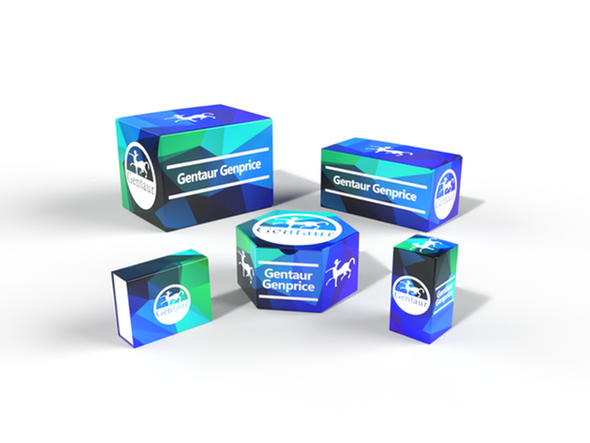740
Human Antibody to group A streptococcal polysaccharide (ASP) ELISA Kit | AE62277HU
- SKU:
- 740-AE62277HU
- Availability:
- Usually ships in 5 working days
Description
Human Antibody to group A streptococcal polysaccharide (ASP) ELISA Kit | AE62277HU | Gentaur UK, US & Europe Distribution
Species Reactivity: Human (Homo sapiens)
Abbreviation: ASP
Alternative Name: N/A
Application: ELISA
Range: 0.156-10 ng/mL
Sensitivity: 0.067 ng/mL
Intra-Assay: ≤4.8%
Inter-Assay: ≤7.9%
Recovery: 1
Sample Type: Serum, Plasma, Other biological fluids
Detection Method: Competitive ELISA
Analysis Method : Qualitative
Test Principale: This assay employs the competitive enzyme immunoassay technique. The microtiter plate provided in this kit has been pre-coated with an antibody specific to ASP. Standards or samples are then added to the appropriate microtiter plate wells with a Horseradish Peroxidase (HRP) -conjugated ASP and incubated. The competitive inhibition reaction is launched between with HRP labeled ASP and unlabeled ASP with the antibody. A substrate solution is added to the wells and the color develops in opposite to the amount of ASP in the sample. The color development is stopped and the intensity of the color is measured.
Product Overview: Acylation Stimulating Protein (ASP) is one of the factors that control adipose tissue function. It was initially identified from human plasma, and determined to be a derivative of the 3rd complement component (C3) . Arginine removal from activated C3 (C3a) by carboxypeptidase results in C3a-desArg, also known as ASP.Human fat cells have been shown to have mRNA for Adipsin (complement factor D), C3 and factor B, all of which are components necessary to generate C3a, the precursor for ASP. Basal production of ASP in adipocytes is dependent on adipocyte differentiation, with ASP production increasing after 7 days of adipocyte differentiation. While ASP is produced by the interaction of C3, factor B and Adipsin in the alternate complement pathway, it can also be potentially generated by the classical complement pathway as well as the lectin pathway.
Stability: The stability of ELISA kit is determined by the loss rate of activity. The loss rate of this kit is less than 5% within the expiration date under appropriate storage condition. The loss rate was determined by accelerated thermal degradation test. Keep the kit at 37°C for 4 and 7 days, and compare O.D.values of the kit kept at 37°C with that of at recommended temperature. (referring from China Biological Products Standard, which was calculated by the Arrhenius equation. For ELISA kit, 4 days storage at 37°C can be considered as 6 months at 2 - 8°C, which means 7 days at 37°C equaling 12 months at 2 - 8°C) .






